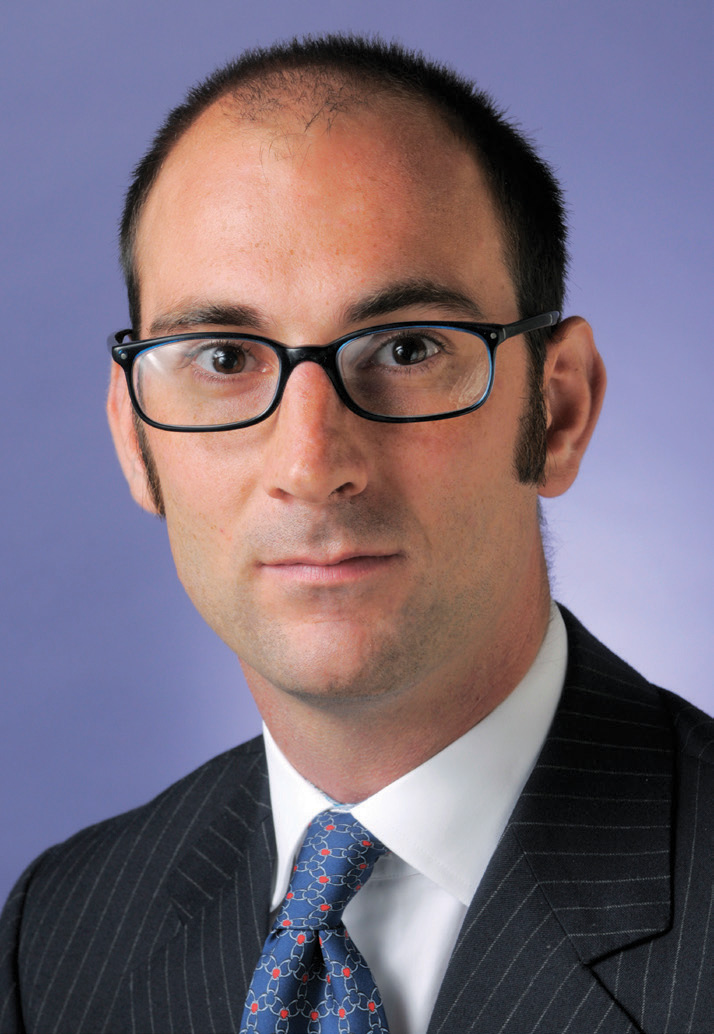Once upon a time, if an investor wanted to access a hedge fund it was a case of take it on face value or leave it. The lack of transparency meant bad practice by managers might have more easily slipped under the radar, but hedge fund governance has come on in leaps and bounds since the crisis. A culture of improved due diligence and appointing independent directors for funds has grown among the institutional investment industry, particularly in the UK. Fortunately fraud cases are few and far between, but investors still need to be aware of the importance of hedge fund governance and how to carry out thorough due diligence.

“We have to have an independent board and if they don’t have that, it is a non-starter.”
John Caulfield
In the spotlight
Hedge fund governance was thrust into the spotlight in 2008 following the game-changing $50bn Bernie Madoff fraud case. Since then hedge funds in general have suffered a torrid few years and more recently a number of high profile fraud cases have surfaced, including the UK’s largest hedge fund fraud involving London-based hedge fund manager Weavering Capital which saw investors who had invested in the Weavering Macro Fixed Income fund facing losses of more than $530m when the fund collapsed in March 2009.
In terms of bad governance Madoff ticked all the boxes: it had feeder vehicles into the master fund, the auditor was not an independent entity, there were no administrators assessing what he was doing and no board members outside of his close circle of friends and family.
Similarly, in the Weavering case the allegedly independent directors were relatives of the fund manager and rubber- stamped transactions when in truth they had no idea of the nature of the business or its transactions. The fund had $600m of interest rate swap agreements that the court ruled were never intended to be enforceable instruments but were a “sham” used to manipulate net asset value figures.
Keeping it in the family
The hedge fund world’s evolution began with privately-owned boutiques and even though management companies were generally onshore, the funds themselves tended to be in offshore locations because their use of leverage, shorting and derivative strategies were made difficult within onshore regulated frameworks. Often the funds themselves were designed by the fund managers and when it came to putting together the board there was a distinct whiff of cronyism in the air. Indeed, the directors of the Weavering fund were the younger brother and stepfather of the investment manager, Magnus Peterson, which should have raised a serious red flag to anyone carrying out thorough due diligence.
“If anyone was trying to understand the transactions it would be apparent that these guys had some bizarre strategy that was not really an institutional product,” says Rishi Patel, head of operational due diligence at Momentum Global Investment Management.
John Godden, head of managed account platform at Sciens Capital, adds: “You look at the controls that should have been in place, it appears the board of the fund was rather friendly with Weavering plus two independents who had a large number of hedge funds they were supposed to be on the board of and paid little attention and rubber stamped it. That is where the breakdown has taken place and the fact there has been too close a relationship between the fund, the governance vehicles and the managers and that has led to conflicts.”
In July, the Serious Fraud Office (SFO) decided to re-open its investigation into Weavering following a successful civil case won by the liquidators and the courts subsequently instructing it to do so. Prior to this, the SFO spent several years investigating the case before deciding not to pursue it further as it believed there was insufficient evidence to secure convictions.
According to Jennifer Desai, associate at Bovill, a regulatory consultant in the fund management space, the SFO’s decision on whether to investigate a case depends on specific criteria, including that the value of the fraud must exceed £1m, there has to be a significant international dimension and it has to be of widespread public concern. Desai says it is difficult to predict whether the Weavering case will open up the floodgates for further prosecutions.
“Whether we are going to see a lot of prosecutions following the Weavering case would depend on whether those criteria were met, or if the SFO did turn it down whether another public body was to say ‘we want you to take this on’,” she adds.
Independent productions
There are two approaches to address shortcomings in hedge fund governance: either making hedge funds improve their governance by appointing independent and properly qualified directors; or completely divorcing the manager from the fund and its operational processes, which is the norm in the long-only world and the approach taken by the increasingly popular managed account platforms.
The first of these – appointing independent directors – has been the topic of debate for some time since the high profile fraud cases, such as Madoff, brought it sharply into focus. According to industry players, the UK has always more readily used independent directors compared to the US, but in a lot of cases it has been ‘light touch’ directorship where one director could be in control of hundreds of other funds and thus find they are too thinly spread.
Andrew Rubio, chief executive at hedge fund outsourcing firm Throgmorton, says: “When Madoff came along institutional investors said ‘we are not going to touch you with a barge pole unless you get as an absolute minimum independently priced by a fund administration firm and have independent directors’.”
- 1
- 2
- »




Comments